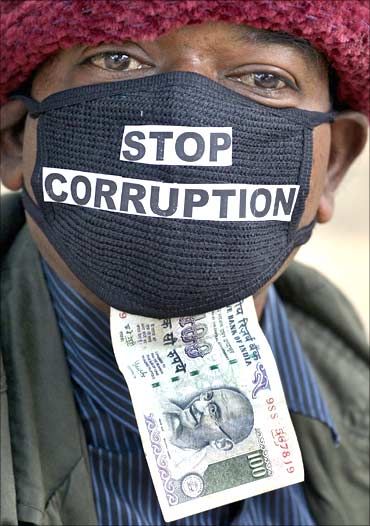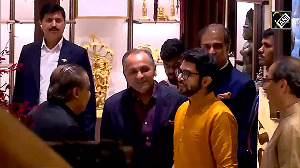A cut in pension can be imposed only within four years of retirement of an official.
 The National Democratic Alliance government has either fired or reduced the pension of 45 senior officers for unsatisfactory performance and delivery in public services, Prime Minister Narendra Modi revealed on Wednesday.
The National Democratic Alliance government has either fired or reduced the pension of 45 senior officers for unsatisfactory performance and delivery in public services, Prime Minister Narendra Modi revealed on Wednesday.
“We have so far removed and ensured pension cuts of 45 senior officers of various services,” he said, addressing the Global Focal Point Conference on Asset Recovery, organised by Interpol and the World Bank Group’s Stolen Asset Recovery Initiative.
Modi said his government is committed to ensuring probity among public servants.
“The government is unsparing when it comes to punishing the corrupt.
Under the Central Civil Services (Pension) Rules, 1972, department proceedings pending at the time of retirement are continued and concluded by the same disciplinary authority.
In such cases, under Rule 9 of the pension policy, only provisional pension is paid and gratuity is withheld till the conclusion of departmental proceedings and issue of final orders by the same authority.
This clause comes into play in cases of misconduct and behavior unbecoming of a government official, but not for missing out performance target, a retired secretary pointed out.
Also, a cut in pension can be imposed only within four years of retirement of an official.
The Prime Minister said the government would also ensure public servants are protected from frivolous allegations.
While he did not elaborate on this, the government is reportedly gearing up to amend the Prevention of Corruption Act to protect officials from such allegations.
The Prime Minister said globalisation of organised crimes poses a major threat to global economies.
“Dirty money drives out good money.
"Organised crime can hamper investment and economic growth. It can also infiltrate or acquire a large spectrum of the economy.”
The Prime Minister said economic liberalisation and globalisation have drastically increased the ability to move profits of crime to anywhere in the world.
To plug this, Modi said his government would implement uniform global standard for automatic exchange of information on a fully reciprocal basis.
The Prime Minister observed that the proceeds of crime and corruption do not belong to the country where they are stashed.
“They rightfully belong to the citizens of the country from which they have been plundered,” he added.
Pointing at the legal and procedural obstacles that hinder asset recovery, he said police and law enforcement agencies should forge formal and informal relationships.
There are several cases in the annals of Indian judicial history in which conviction was secured solely on the basis of forensic expert opinion, he said, adding the country must have adequate facilities to be able to clear the huge backlog of forensic opinion.
Image: An anti-corruption rally. Photograph: Reuters











